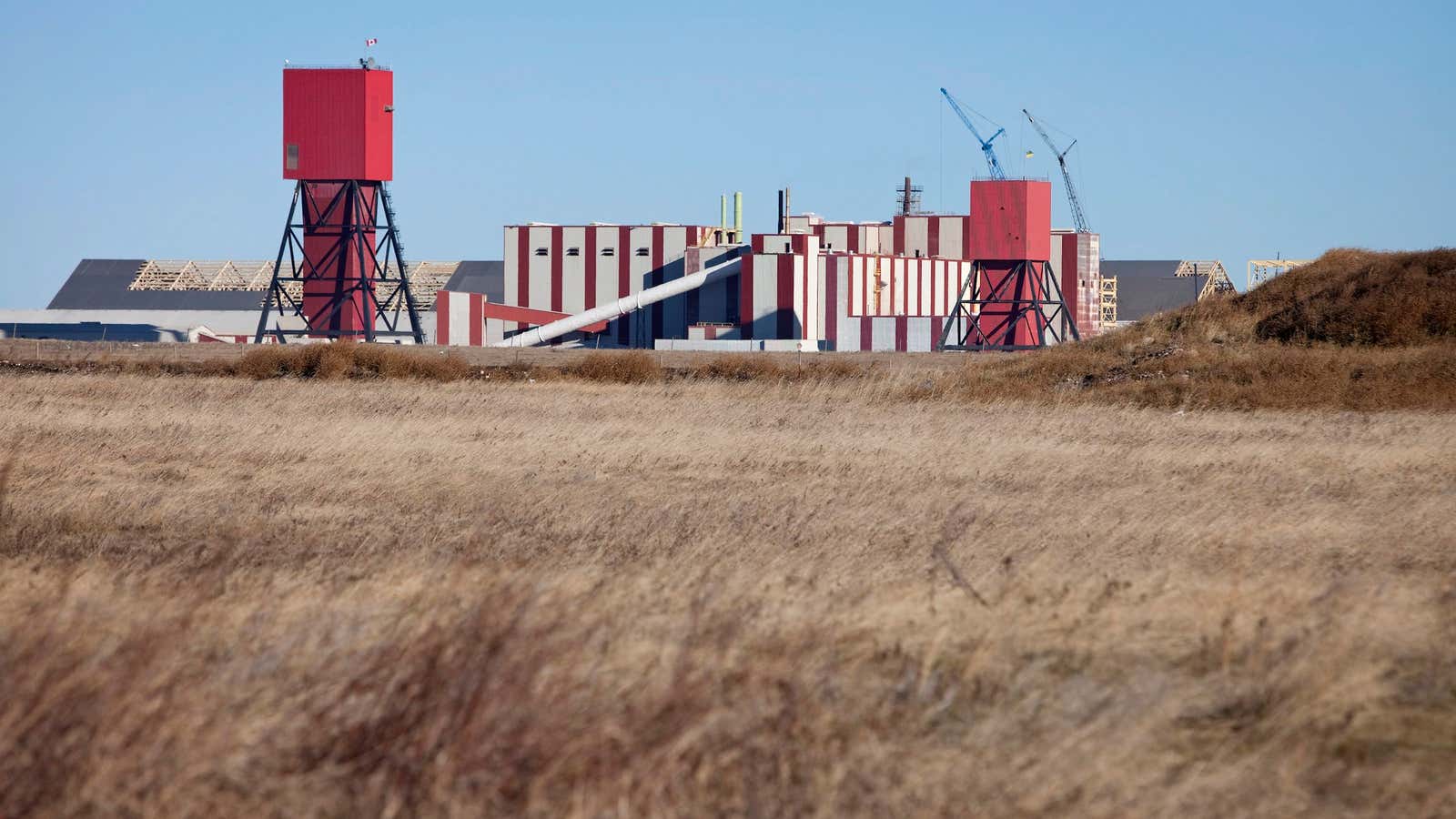The Canadian members of the North American potash cartel have done their best to downplay the surprising news that Russia’s OAO Uralkali was pulling out of a rival European potash venture. The world is closely watching to see what the Uralkali move could mean for prices of potash, a key ingredient in fertilizer, and whether the sector moves from being a seller’s to a buyer’s market.
Last week, Uralkali shocked the potash industry by quitting the Belarusian Potash Company (BPC), the marketing group that includes Belarussia’s Belaruskali. Uralkali CEO Vladislav Baumgertner was upset about Belaruskali selling potash to China outside of the BPC group.
Uralkali predicted that its pullout could cause global potash prices to fall by 25%, to below $300 per ton, in the second half of 2013. China could increasingly set potash prices when, previously, the cartels had the pricing power. European-based BPC and Canpotex, the potash cartel based in North America, control two-thirds of the potash market.
Today, Agrium CEO Mike Wilson said he doesn’t see the Uralkali move affecting Canpotex given its strong position, though he said the company will keep an eye on price and production volume. Agrium COO Chuck Magro expressed a bit more concern, saying the Uralkali announcement has created significant uncertainty, and it’s going to take time to see how global producers are going to respond.
Yesterday Bill Doyle, CEO of Potash Corp in Canada, downplayed the Uralkali news, and said the media and others were overreacting. Doyle added that he thought the spat between Uralkali and Belaruskali could be temporary, and there was a possibility that the two could make up in the future. ”Take a deep breath and relax,” Doyle said. “Everything is going to be just fine.”
He said his company hasn’t seen any dramatic changes in pricing, and that “potash is not like shoes. If you cut the price in half, people don’t buy two pairs. So it’s not like farmers are going to buy twice as much.”
